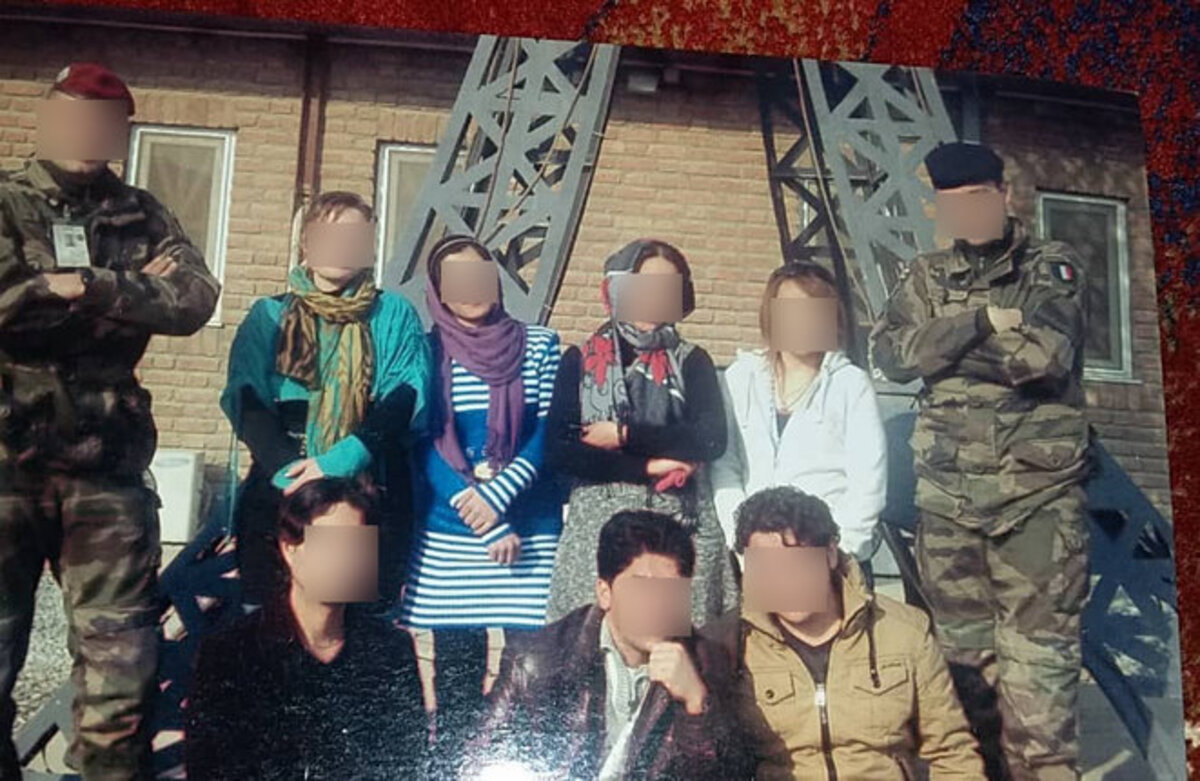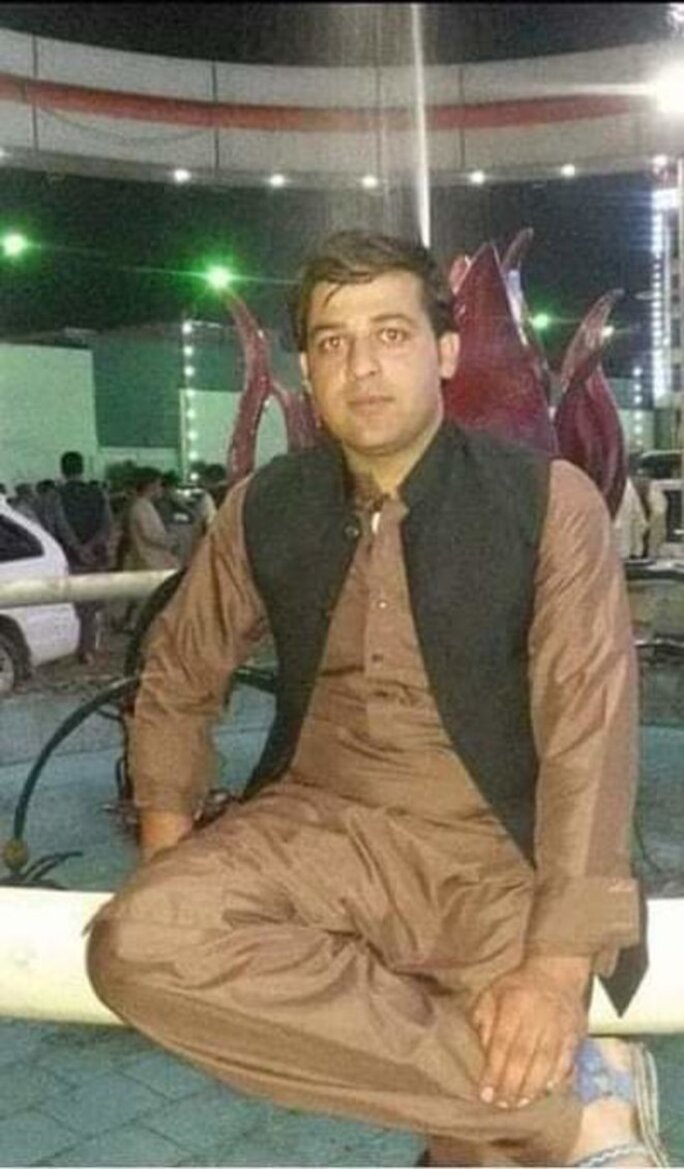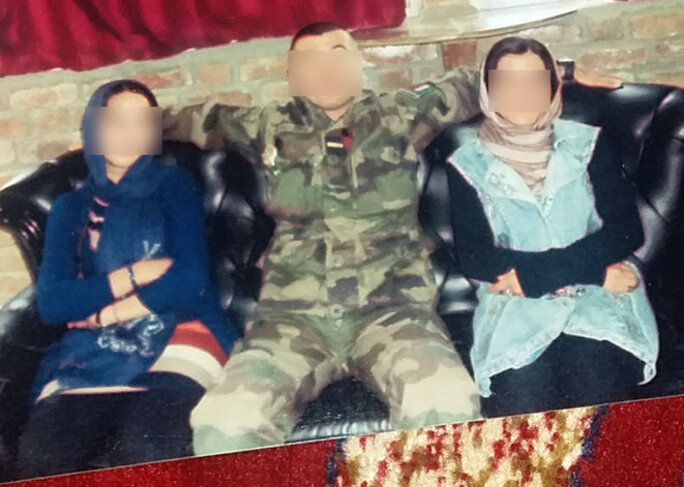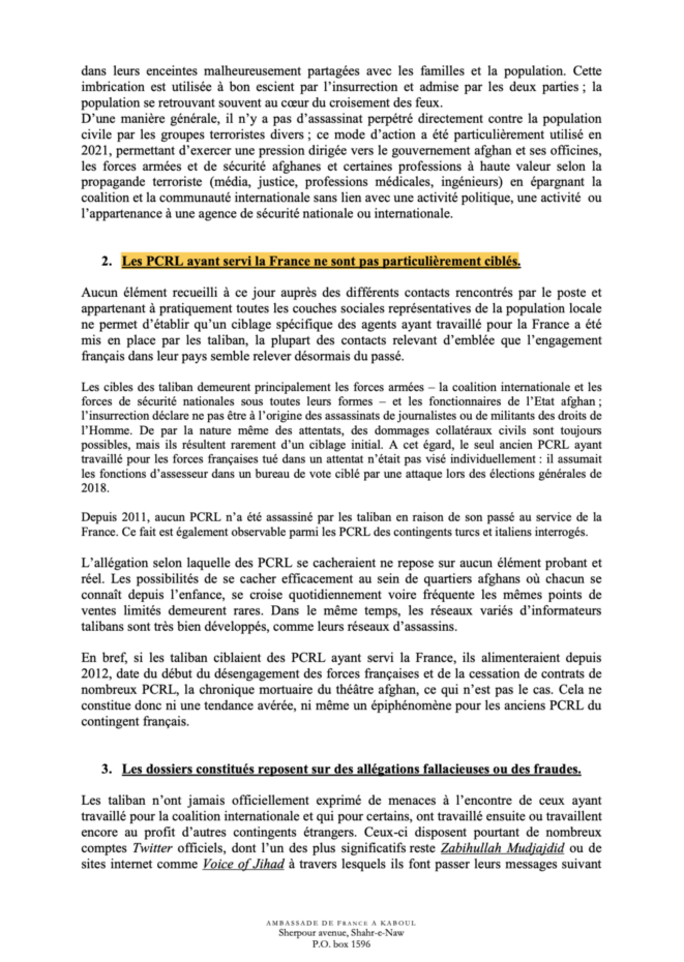The lightning success over recent days of the offensive by the Taliban, who have already taken control of swathes of territory in the north of the country, and the ever-greater threat of them soon entering the Afghan capital Kabul, places those Afghans who once worked for the US-led coalition forces in very serious fear for their lives and those of their families.
For the jihadists, the interpreters, drivers cooks and others who served the western armies, notably the US, French, British and Italian military, are considered to be traitors and, for some of them, spies.
The French forces employed around 800 Afghans, who officially were given the statute of “locally recruited civilian personnel”, or “PCRL”. Indispensable for the French army in their daily operations, helping with tasks ranging from camp logistics to highly sensitive military operations, these Afghan men and women were largely abandoned when the bulk of French army units had left the country after 13 years in 2014.

Enlargement : Illustration 1

Fatima A. (whose last name is withheld at her request for security reasons) worked as a shop manager at Camp Warehouse, an operations centre near Kabul for the coalition’s International Security Assistance Force, selling miscellaneous goods to the French soldiers. A certificate issued by the French defence ministry, seen by Mediapart, attests to her work as a shop manager at the camp from July 1st 2012 up until May 15th 2013.
In one of the photos taken during that time, she can be seen standing and smiling along with a small group of other Afghans employed by the French army, with two French soldiers on either side. “My job ended when the French mission ended,” recounted Fatima, who now works in an Afghan hospital. “They went home and I went back to my computer programming studies.”
But her work for the French army brought threats against her. “As of the moment I started working with the French, I received anonymous calls,” she said. “I was told, ‘If you don’t stop your work with the French, we’ll kill you’.” The calls, she said, were made in “Arabic, Persian, Dari and Pashto”.
But there were other threats. “My uncle also threatened me,” she said. “He had already said that he could denounce me to the Taliban.”
As the Taliban military advance across the country now appears inevitable, Fatima, like other former employees of the coalition, fears more than ever for her safety. “It’s very dangerous for me. When I go out, I put on a long veil which covers my face and my body, so that I’m not recognised. If they recognise me, they’ll kill me.”
On June 19th this year, one of her former colleagues at Camp Warehouse, Abdul Basir, was gunned down. He worked as a cook at the camp at the end of the 2000s, and France had on several occasions refused to grant him a visa.

Enlargement : Illustration 2

French journalist Quentin Müller, who co-authored a 2019 book about the fate of France’s Afghan interpreters (called tarjuman in the Dari language) entitled Tarjuman, une trahison française (‘Tarjuman, a French betrayal’), has been in contact with the family of Abdul Basir. He understands that Basir was murdered by the Taliban after they found traces of salary slips from the French army in his mobile phone.
One month before he was shot dead, a former Afghan interpreter for US forces, Sohail Pardis, was found beheaded by the Taliban. Earlier this year, an Afghan interpreter for the British embassy in Kabul was wounded when he narrowly escaped an ambush by gunmen as he drove home from work. Despite this, the British government initially denied offering him and his 20 colleagues safe haven, a decision that was finally overturned after media interest in their plight.
“I can sense a true fear on the part of my clients,” said Paris-based lawyer Antoine Ory, who represents around 20 former Afghan employees of the French military seeking asylum in France, including Fatima A. “Since a few weeks now, I receive messages every day. Before, they contacted me once a week, even once per month, to ask if their cases were moving forward. Since May-June, messages come in almost daily, very alarmist, saying, ‘It smells bad for us, they’re coming, it makes us very afraid’.”
Abdullah S. (whose last name is withheld on his request for security reasons) is a former interpreter for the French army who lives in Kabul. “The situation is becoming more dangerous every day,” he said. “The threats are very serious. The Taliban are encircling Kabul, they won’t leave the interpreters alive. We need help.” He said he had applied for a visa from the French embassy on three occasions, in 2014, 2016 and 2017, and never received a response.
“The situation in Afghanistan has degraded, we are very worried about the dangers that weigh on the PCRL who are still out there,” said Abdul Razeq Adeel is the president of an association of former French army Afghan interpreters and auxiliary workers, based in France. In 2011, Adeel, who has in the past received threats from both the Taliban and the so-called Islamic State group because of his own work with the French military, was wounded in the explosion of a bomb placed close to his house. It was completely destroyed by the blast. He was eventually relocated to France, unlike other former colleagues.
“I am in contact with 75 to 80 people who are still waiting for a visa,” he said. “If they don’t obtain them, they will be forced to clandestinely flee to a neighbouring country, to Turkey, Iran or Pakistan, even though Afghan’s are not well treated there.”
In 2019, Fatima A. filed a request with the French armed forces ministry (the renamed former defence ministry) to be given a formal protection status, which would in turn allow her to obtain a visa for safe haven in France. Her request was rejected by the ministry, a decision that was upheld by the Paris administrative tribunal in July after her lawyer lodged an appeal.

Enlargement : Illustration 3

The administrative tribunal ruled that she provided insufficient proof of the threat against her. “Madam A. asserts that she is currently exposed to grave danger in view of her past duties that she exercised with the French armed forces in Afghanistan and the military offensive currently led by the Taliban,” the tribunal’s sitting magistrate said in his ruling. “However, the documents she has provided to the [tribunal] debate do not permit the attesting of the reality of the fears she raises.”
The reality of the fate of Abdul Basir and others leaves no doubt of the dangers posed, nor do the threats made in phone calls. But beyond this, the very profile of Fatima A., an unmarried Shiite woman who worked for the French military, makes her an obvious target for the Taliban. Yet for the French armed forces legal department, like for the administrative tribunal magistrate, such elements are insufficient to allow her to begin the process of seeking a visa for France.
In its written arguments submitted to the tribunal in defence of its decision to turn down her application, the legal department of the armed forces ministry declared: “Madam A. provides no element that permits to distinguish the existence of threats that have a personal, real and current character linked to the duties she would [sic] have exercises to the benefit of the French forces.”
Reacting to that assertion, Fatima’s lawyer Antoine Ory told Mediapart: “Otherwise put, a Taliban has to threaten you, but also he must leave proof of that threat, and lastly he must detail in that threat that he has made it because you have worked for the French state. Whereas things don’t happen like that. The Taliban don’t send their threats via a bailiff. But for a few exceptions, they strike without warning.”

Enlargement : Illustration 4

In its statement of case to the Paris administrative tribunal, dated July 26th, the armed forces ministry includes mention of the violence committed by the Taliban. But it insisted that the violence targets “above all the powers in place” and is aimed less against civilians. It notably made no mention of the case of Abdul Basir, shot dead one month earlier, yet the murder of the former Afghan cook at Camp Warehouse contradicts the ministry’s claims.
Mediapart has gained access to an internal report, dated June 3rd, by the international relations and strategy department (DGRIS) of the armed forces ministry – two weeks before Basir was shot dead – and which argued that the PCRL employees of the French army “are not particularly targeted” (see document above-left).
While the legal path for the former employees of the French military appears blocked due to the almost impossible task of providing detailed evidence of a specific threat made to them personally, they and those supporting their cause have a last hope that a political or diplomatic move will be made to provide them safe haven, as was recently the case in the US.
On July 29th, the US Congress approved the raising of the number of special visas for former Afghan employees of the US armed forces to 19,000, while relaxing some of the requirements for obtaining them. The following day, a first group of 221 former interpreters, drivers and others, and their families, landed by plane in Virginia from Afghanistan.
“Why them and not us?” asked Fatima A. “That’s the question that I keep asking myself at the moment.”
-------------------------
- The original French version of this report can be found here.
English version by Graham Tearse


